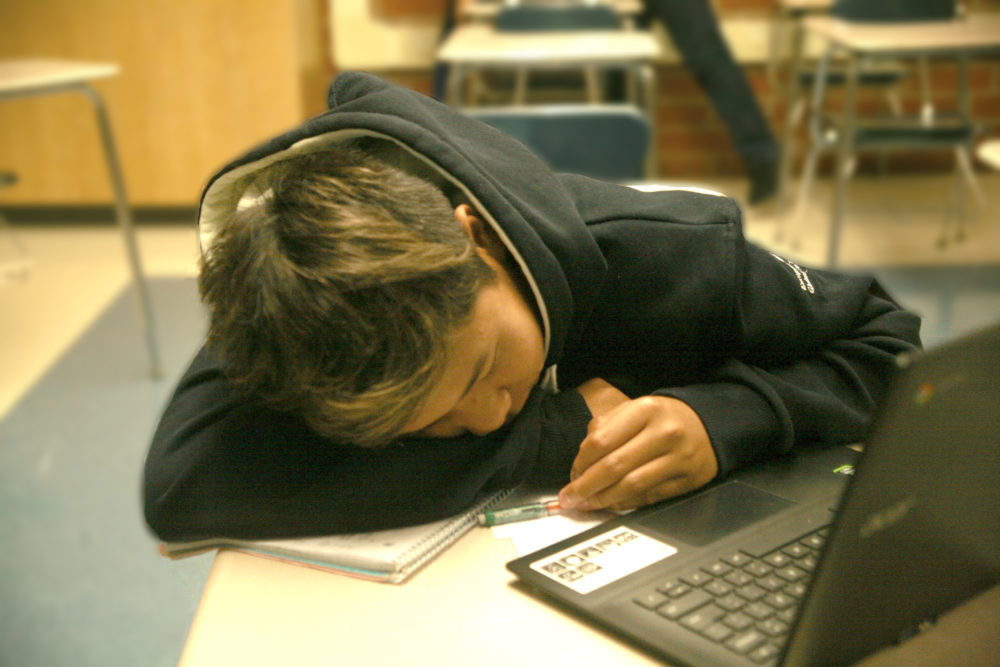
By Lylyan Yenson, Staff Writer
Many students suffer from not getting enough sleep due to the pressures of school and extracurricular activities. On average, teenagers need about nine hours of sleep, but only receive seven hours. Instead of sleeping, many students stay up studying, doing their homework for school or going on social media. Although there are many other reasons, school and technology are the main reasons students receive little to no sleep.
Studies have shown that on average, a teenager gets about seven hours of sleep while the recommended time is nine hours of sleep. Although this doesn’t seem like a large gap in time, over a course four years the number is larger than possibly imagined. According to a survey done by teachers, it is shown that teachers assign over three hours and 30 minutes of homework per day, and it adds up to be 17 hours and thirty minutes each week.
High schoolers are expected to be able to do volunteer work, participate in clubs, do sports and get good grades in school all while being social and active within their communities. With all their extracurricular activities and homework, how are they going to get a healthy amount of sleep each day? The answer is they don’t. Many stay up late to do their three hours of homework from their five different teachers which are all due the next day. Some might even have several tests worth half of their grade and are rushing to cram all the information into their brains in one night.
Teenagers are pressured to succeed in school and have the mindset that if they fail now, they will fail later in life as well. This pressure causes them to stay up late to finish their homework or study for the test they have the next day. Students often fall asleep while doing their homework or even during class. Several students claimed that they have to wake up much earlier to get to school on time because they live farther away or because they have a zero period class.
Technological advances have had many positive and negative effects and this is another one of it’s negative effects. Students tend to go onto social media or text with their friends before going to sleep. This often causes them to lose track of time and to sleep even later. Teens are less likely to go to sleep when using any form of technology before they go to sleep because the bright screens sends a message to their brain saying it isn’t night and they don’t need to sleep yet.
There are many things that could be caused because of the little sleep students receive and the most severe one is the potential to have a panic attack. Studies have shown that lack of sleep can cause students to have a shift in personalities and become moody or have behavior issues. Their academic performances also deteriorate and it becomes much harder for them to focus in school. It can also cause teenagers to forget important information and become more prone to acne and pimples.
There are many ways that teenagers could try to solve their problems with sleep. Maintaining a balanced and stable sleeping schedule will help students get the same amount of sleep each day so they get used to the hours of sleep they receive and aren’t as tired in the morning. Avoid oversleeping on the weekends because although it sounds nice, it makes it harder for teenagers to get back into their school schedule the next day. Students could try taking short naps throughout the day to refresh their minds and to help focus better.
Almost all high school students suffer from not getting enough sleep, click here to learn more about sleep deprivation.





